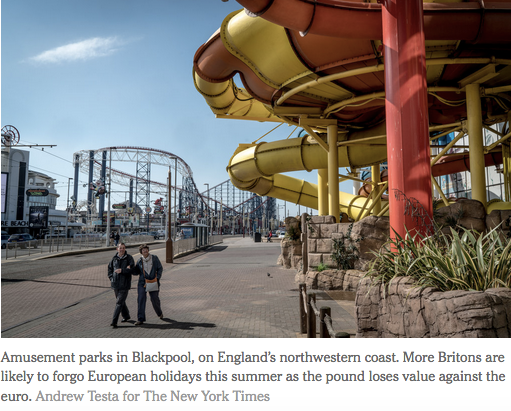In the year since Britain’s shocking vote to abandon the European Union, the British pound has surrendered 13 percent of its value against the euro, raising the cost of cherished European vacations. Food from other lands — meat, cheese, wine — is more expensive, too. So is gasoline.
Accelerating inflation may help explain the stunning electoral rebuke of Prime Minister Theresa May and her governing Conservative Party as well as the unexpected strengthening of the Labour Party in Thursday’s parliamentary elections. Consumers are grappling with rising prices, and wages have not kept pace. The economy is weakening.
. . .
The economy expanded by only 0.2 percent over the first three months of the year compared to the previous quarter, far less than the 0.7 percent pace of growth seen at the end of 2016. It grew at an annualized pace of 2 percent during the quarter.
Consumer spending makes up nearly two-thirds of British economic activity, meaning the troubles of ordinary people can have decisive influence over the economy — and politics, for that matter. For the average worker, rising prices for everyday consumer goods are landing atop a decade of stagnating wages.
Few economists expect that Britain will fall into a recession, but the consensus envisions disappointing economic growth ranging between 1.5 percent and 1.75 percent annually over this year and next.
. . .
“Food, housing, travel. Everything is more expensive now,” she said at the beginning of a recent three-day weekend, as she and her family awaited a train to a coastal destination that was closer at hand — Brighton Beach, at the southern reaches of England.




